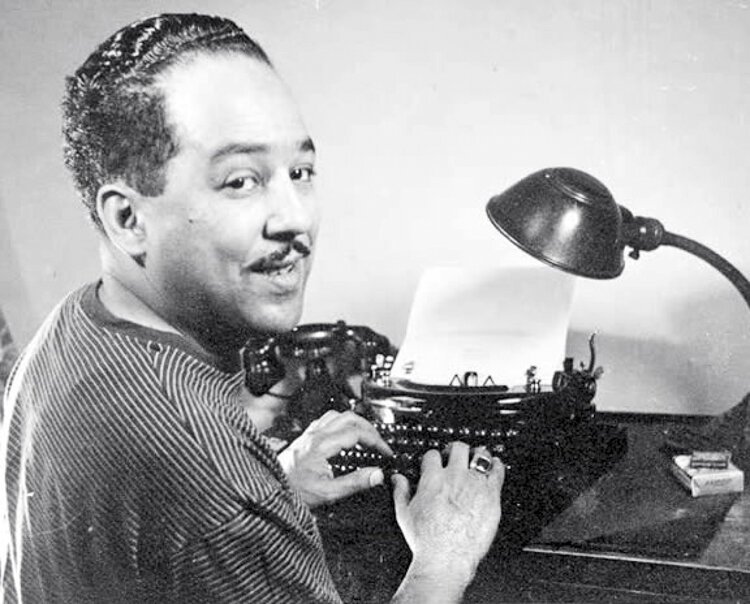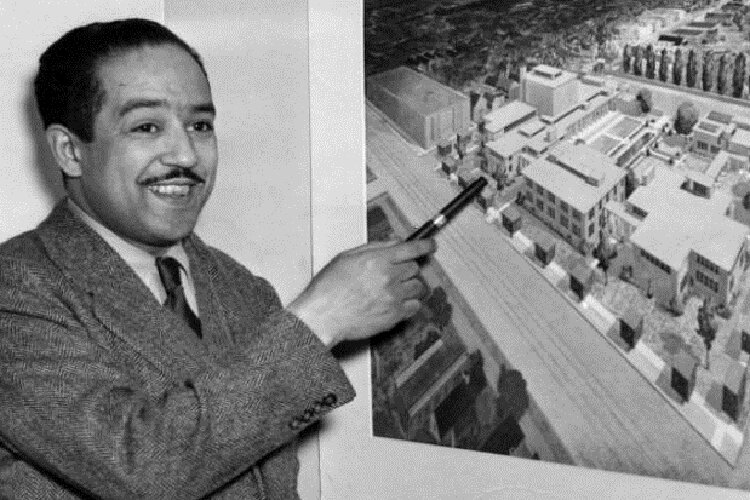Karamu House receives $75K grant to restore residence of poet and playwright Langston Hughes
On Thursday, July 15, the African American Cultural Heritage Action Fund, a program within the National Trust for Historic Preservation, announced $3 million in support to help preserve African American landmarks—including a $75,000 matching grant to Karamu House.
The grant is to restore the apartment residence of poet and playwright Langston Hughes at Karamu House, for use as short-term housing for emerging artists of color to be artists-in-residence, says Ann Barnett, Karamu’s director of communications and institutional advancement.
 Langston HughesBarnett says that since Karamu House’s beginning, the oldest producing African American theater in the country has been a welcoming place for all races. Karamu House founders Russell and Rowena Jelliffe had an especially close relationship with Harlem Renaissance playwright and poet Langston Hughes.
Langston HughesBarnett says that since Karamu House’s beginning, the oldest producing African American theater in the country has been a welcoming place for all races. Karamu House founders Russell and Rowena Jelliffe had an especially close relationship with Harlem Renaissance playwright and poet Langston Hughes.
Hughes began spending time at the settlement house in his late teens, where his budding artistry was nurtured and encouraged. Hughes went on to write and debut several plays at Karamu, including his very first play, “The Golden Piece,” in 1921.
Throughout his life, Hughes regularly returned to Cleveland, staying at Karamu in its residential suite on the second floor of the theatre wing.
“To both preserve and honor the residence of one of America’s greatest Black writers, Karamu will restore the suite into temporary living quarters for select emerging African American artists who are part of Karamu’s growing artist residency program,” says Barnett. “The two-bedroom residence includes a kitchen, full bathroom, and living and dining area.”
Barnett says the space is in urgent need of repair and restoration. Ceilings in each of the two bedrooms are deteriorating; there is mold throughout the apartment; plumbing for the bathroom and kitchen area is not functional; and structural issues exist.
The radiator heating system needs repairs, and there is no cooling system in place. The carpet is worn, and the cement walls are bare. There are no working appliances in the kitchen, and the fixtures in the bathroom are worn and inoperable.
Barnett looks at the bright side though. “The space, however, does have its original door moldings, doors and door handles, and kitchen cupboards,” she says.
With $50 million of funding, the African American Cultural Heritage Action Fund is the largest preservation effort ever undertaken to support the longevity of African American historic sites. The July 15 announcement represents the largest single disbursement in the Action Fund’s four-year history.
“The recipients of this funding exemplify centuries of African American resilience, activism, and achievement," Said Brent Leggs, executive director of the Action Fund. "Some of their stories are known, and some are yet untold. Together they help document the true, complex history of our nation.'


